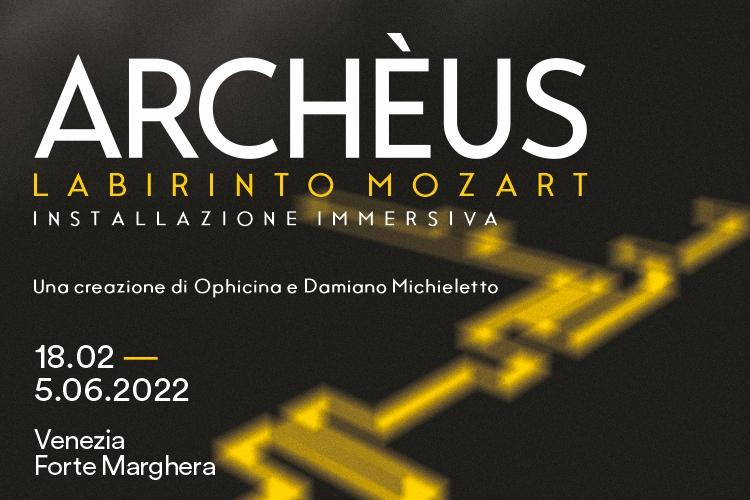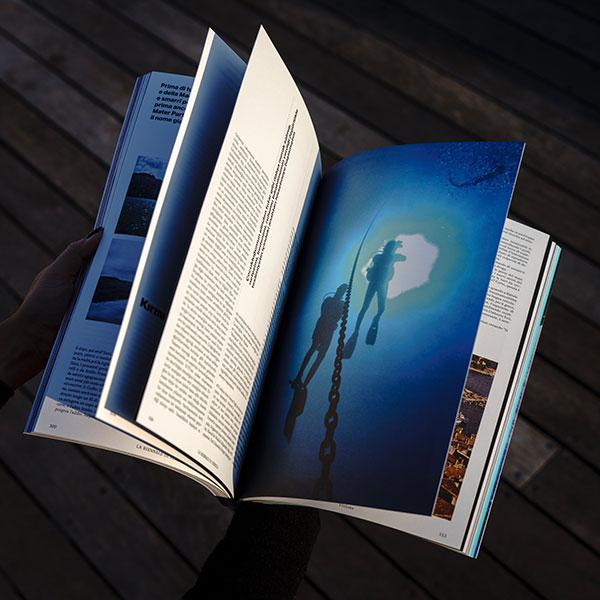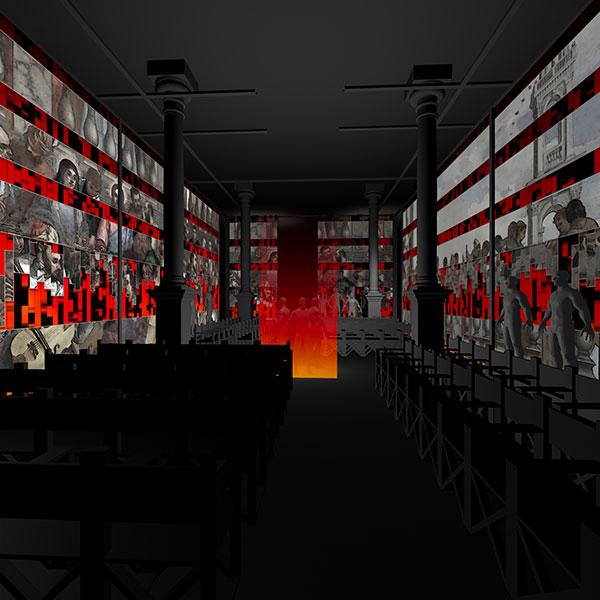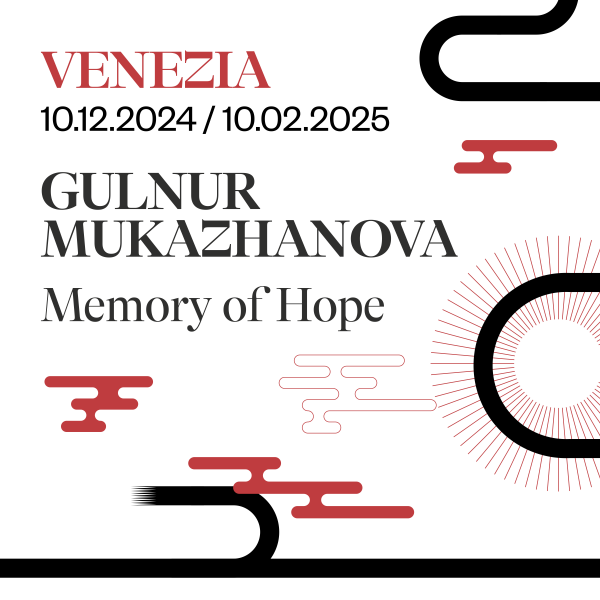A creation by Ophicina and Damiano Michieletto. A special project by the Historical Archive of La Biennale for the 1600th anniversary of the foundation of Venice for Carnival.
At Forte Marghera (Venezia Mestre), 18 February > 5 June 2022. Free admission, reservation required.

Archèus. Labirinto Mozart: a special project by the Historical Archive of La Biennale
Immersive installation by Ophicina and Damiano Michieletto at Forte Marghera (Mestre), 18 February > 5 June 2022 (free admission, reservation required).
Archèus
Labirinto Mozart
La Biennale di Venezia, to celebrate the 1600th anniversary of the foundation of the city of Venice, for Carnival, will present a special project by the Historical Archive (ASAC): Archèus. Labirinto Mozart, an immersive installation by Ophicina and Damiano Michieletto, produced in collaboration with the Teatro La Fenice in Venice. It will be on display at Forte Marghera, Building 29 (Venezia Mestre) from 18 February to 5 June 2022 (free admission, reservation required).
Archèus will open on the occasion of the 13th International Kids’ Carnival (19 > 27 February 2022) at Forte Marghera – the venue to which since 2016, in collaboration with the City of Venice, La Biennale has brought exhibitions related to its artistic disciplines. The initiative will be open through June 2022, through the early months of the Biennale Arte, and at the threshold of the Theatre and Dance Festivals. Archèus is an important new event, a significant example of the dialogue between the arts and the activities that La Biennale di Venezia intends to pursue year round.
The Archèus project is based on a fusion of artistic codes, in which the musical theatre of Mozart’s The Magic Flute meets contemporary aesthetic forms. In Archèus, the characteristics of the installation – in which participants are immersed in an environment conceived to stimulate perception – borrow the multimedia quality of lyric opera and the narrative structure of a fairy tale, inviting the public to participate in a sort of transformation with the characters.
The path to discover and transform the point of view will unwind through five rooms connected by five dark tunnels: a labyrinth pattern that leads to a reversal of perspectives.
The Magic Flute indeed unfurls as a journey of initiation undertaken by Tamino (as well as Pamina and the helper Papageno). The protagonist of Mozart’s opera experiences a transition from darkness (initially confused with the truth) to the light of solar wisdom, in which the night is recognized as a force that divides and destroys. A similar perceptual metamorphosis will be offered to Archèus’ audience, as new Taminos.
The name Archèus is an alchemic term that describes the active principle that resides in the core of the elements and preserves their vital power of transformation.
Sound sources have been placed in each tunnel and room in Archèus, that will amplify the space of perception with pieces from Mozart’s The Magic Flute, produced by the Teatro La Fenice in Venice in 2015, directed by Damiano Michieletto, conducted by Antonello Manacorda.
Archèus (like the exhibition The Disquieted Muses. When La Biennale di Venezia Meets History held in the Central Pavilion at the Giardini in 2020) is part of a new course undertaken by La Biennale to offer events of the finest quality and entertainment to an increasingly wider public.
Ophicina
Ophicina (Oφcina) – by Damiano Michieletto, Paolo Fantin, Alessandro Carletti, Matteo Perin, Saverio Clemente, Damiana Leoni – is a creative laboratory focused on the contemporary arts, which in its name is heir to the artisanal quality of a Renaissance atelier and the knowledge that it gathered. The intersection of different dimensions is synthesised in the letter φ (phi): a symbol that indicates the golden section, a matrix that runs through all of art history. Ophicina’s research lies at the intersection between different visions and practices, that converge into installation and performance projects, based on the group’s twenty-year experience in producing operas for the world’s major theatres.
Acknowledgments
Archèus enjoys funding from the Ministero della Cultura, Direzione Generale Creatività Contemporanea.


